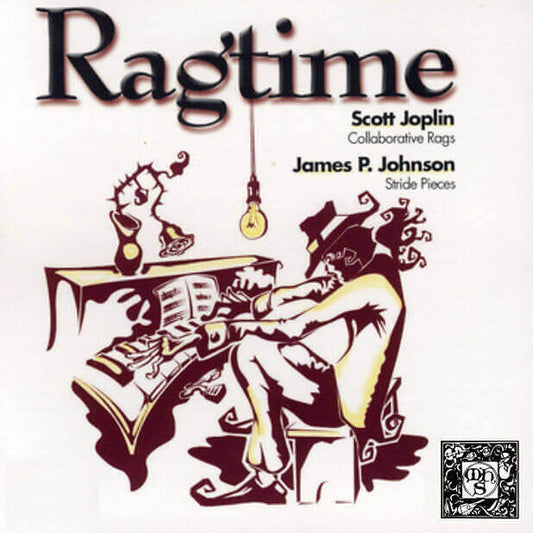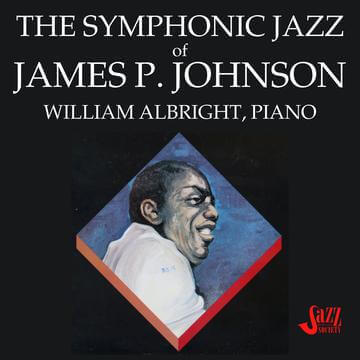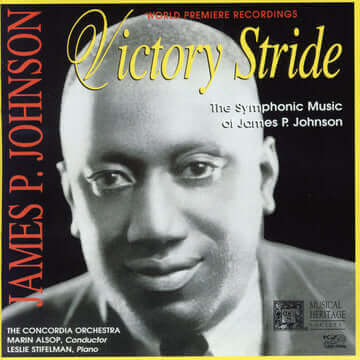Collection: JAMES P. JOHNSON (1894-1955)
Born in New Brunswick, New Jersey, Johnson absorbed a rich tapestry of musical influences from an early age. His mother provided his initial piano lessons, exposing him to hymns, parlor songs, and potentially some ragtime. The family's move to the San Juan Hill neighborhood of New York City (and later Harlem) around 1908 immersed him in a vibrant urban soundscape, encompassing blues, dance music, and the evolving ragtime styles played by pianists like Eubie Blake and Luckey Roberts. Johnson received some formal training but largely developed his prodigious technique and unique style through observation, imitation, and fierce competition in the city's clubs and legendary "rent parties."
By the late 1910s, Johnson had emerged as the undisputed king of Harlem pianists. He perfected the "stride" technique, characterized by the left hand's powerful "oom-pah" motion – alternating bass notes or octaves on the main beats with chords on the off-beats – creating a full, orchestral sound. Over this driving rhythmic foundation, his right hand executed dazzling improvisations, intricate melodies, complex harmonies, and bluesy inflections. His playing was noted for its clarity, power, rhythmic drive, and sophisticated harmonic understanding.
Johnson's influence radiated outwards through several key avenues. His piano rolls, recorded prolifically from 1916 onwards, disseminated his style far beyond New York. His 1921 composition and recording of "Carolina Shout" became a landmark piece, considered a test standard for aspiring stride pianists. Mastering "Carolina Shout" was a rite of passage, signifying entry into the elite circle of Harlem keyboard masters. Legends abound of pianists listening intently to the piano roll, slowing it down to decipher Johnson's intricate figures.
Beyond solo piano, Johnson was a versatile and prolific composer. He accompanied major blues singers like Bessie Smith and Ethel Waters on classic recordings, demonstrating sensitivity and adaptability. He also achieved significant success in musical theater. Collaborating with lyricist Cecil Mack, Johnson composed the score for the hit Broadway show Runnin' Wild (1923), which introduced the defining dance craze of the Roaring Twenties – "The Charleston." While the melody is often attributed solely to Johnson, it likely evolved from existing dockworker tunes, but his arrangement and its placement in the show cemented its iconic status. Other notable compositions include "If I Could Be With You (One Hour Tonight)," "Old Fashioned Love," and "Snowy Morning Blues."
Despite his immense success in popular music and jazz, Johnson harbored ambitions to compose more extensive, "serious" works, blending African American idioms with European classical forms. He composed piano concertos, symphonies, tone poems (like Yamekraw: A Negro Rhapsody, orchestrated by William Grant Still), and even an opera (De Organizer, with libretto by Langston Hughes), though these large-scale works received far less recognition during his lifetime compared to his stride pieces and popular songs.
Johnson was also a crucial mentor figure. He taught and deeply influenced Fats Waller, who became one of the most beloved figures in jazz history. His impact can also be heard in the work of Duke Ellington (who learned "Carolina Shout" from the piano roll), Count Basie, Art Tatum, Thelonious Monk, and countless other pianists who absorbed the foundations of stride piano.
After suffering a major stroke in 1940, Johnson's performing career was significantly curtailed, though he experienced a partial recovery and made some recordings in the mid-1940s. A more severe stroke in 1951 left him incapacitated, and he passed away in Queens, New York, in 1955.
James P. Johnson's legacy is monumental. He codified the stride piano style, composed enduring jazz standards and the defining song of an era ("The Charleston"), influenced generations of musicians across genres, and stands as a foundational figure in the development of jazz piano and American music.






